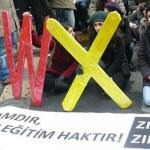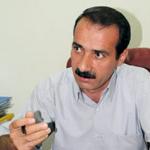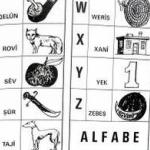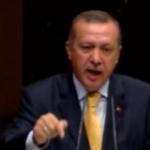EDUCATION IN THE MOTHER LANGUAGE
1.100.000 Signatures Submitted to Parliament
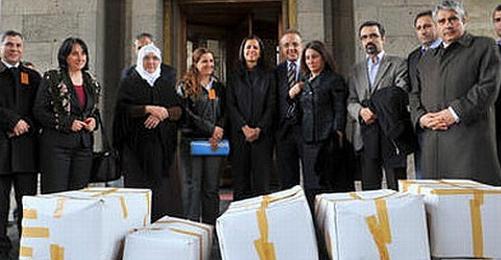
1.1 million signatures were presented to the Petition Commission of the Turkish Grand National Assembly (TBMM) two months after the Democratic Society Congress (DTK) initiated a campaign on "Education in the Mother Language".
A delegation joined by Peace and Democracy Party (BDP) Administrator Sırrı Sakık and DTK Co-Chair Aysel Tuğluk presented an example of their petition to Yahya Akman as the Head of the Commission.
The campaign was supported by the Rights and Freedoms Party (HAKPAR), the Participatory Democracy Party (KADEP), the Human Rights Association (İHD), the Association of Human Rights and Solidarity for Oppressed Peoples (MAZLUMDER), the Education and Science Workers' Union (Eğitim-Sen) and the Mevlana Culture Centre (MKM). The delegation submitted about ten boxes of signed petitions to parliament.
A press conference was organized at the parliament by representatives of the institutions supporting the campaign, DTK Co-Chair Tuğluk and BDP Group Deputy Chair Ayla Akat Ata.
Kurdish politician Tuğluk announced that the DTK had aimed at gathering 1 million signatures when they voiced their demand for education in the mother language two months ago and that they exceeded their aim with a total of 1.1 million signatures. By transforming the campaign into a joint struggle, the target was reached within a very short time, she said.
Petition will be sent to EU, UN and UNESCO
Tuğluk emphasized that the petition was subsequently going to be forwarded to the European Union (EU), The European Commission, the United Nations (UN) and the United Nations Educational, Scientific and Cultural Organization (UNESCO). "The Kurdish question is a problem of rights and freedoms with many dimensions. By broadening rights and freedoms, a solution can be found to this centennial problem. The way there leads via dialogue and reconciliation", Tuğluk stated.
Tuğluk demanded to recognize the Kurds' cultural and political rights, first of all regarding the language at the base of equality. Despite some legal amendments, the Kurdish people are still being oppressed and their right to use their mother language is still restricted, Tuğluk criticized.
A right based on international agreements
The petition, urging for education in Kurdish, reads, "We believe that different cultures, languages and beliefs are part of the richness of this country. This wealth requires the basis of a democratic nation".
The following agreements are highlighted in the petition that defines education in the mother language as a right:
The UN Charter; the Universal Declaration of Human Rights; the UN Convention on Civil and Political Rights; the UN International Convention on Economic, Social and Cultural Rights; the UN Declaration on Persons Belonging to National or Ethnic, Religious and Linguistic Minorities; the European Charter on Regional and Minority Languages; the Helsinki Protocol and the Documents of the 1990 Copenhagen Meeting. (EG/EÖ/VK)




